Our Faculty of Education is consistently ranked as a leading research-intensive education faculty in Canada and the world. Diverse in scope and far-reaching in impact, our research encompasses the arts and humanities, the health sciences and social sciences, the natural sciences and engineering, and so much more.
The Research Report
The Faculty of Education’s Office of Research in Education released the 2020–2022 Research Report.
Learn about our research centres, scholarly awards and grants, chairs and professorships, and the work of the Office of Research in Education led by Associate Dean, Research Dr. Patsy Duff; Director of Research Development Robert Olaj and Research Grants Facilitator Dr. Nandini Maharaj.
The report showcases the impressive work of selected researchers at different stages of their careers from across our Faculty. They represent different disciplines and diversity in innovative research emerging from the UBC Faculty of Education.
Diversity and Innovation in Research
The report features the research of twelve scholars in education at UBC who embody, individually and collectively, the Faculty’s and University’s strategic research priorities, community engagement, and contributions to knowledge and social justice in relation to four broad themes.
To appreciate the full breath of diversity and innovation in research in education at UBC, be sure to download the full report [PDF].
Indigenous Community-based Research
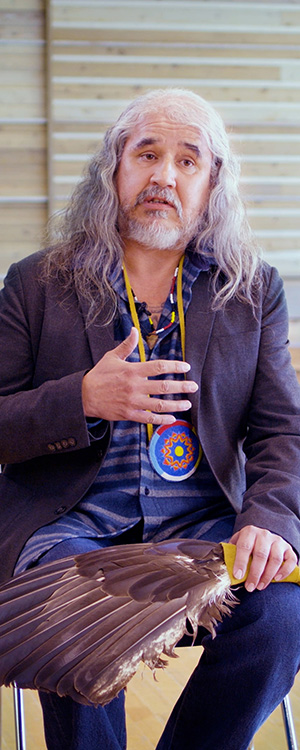
Dr. Cash Ahenakew
Associate Professor
Department of Educational Studies
Dr. Ahenakew’s (photo) research is based on a commitment to developing Indigenous theories, curriculum, pedagogies, and mixed methodologies. His work addresses the complexities at the interface between Indigenous and non-Indigenous knowledges, education, methodology, ceremony, and well-being. Dr. Ahenakew seeks to address the colonial determinants of health inequalities by drawing on his experience in international interdisciplinary research and Indigenous healing practices.
Dr. Johanna Sam
Assistant Professor
Department of Educational and Counselling Psychology, and Special Education
Dr. Sam takes a community-based approach to exploring the relationships among cyber-aggression, resiliency, academic achievement, and mental wellness. She leads a team of researchers in the Community-based Indigeneity, Resiliency and Cyberbullying Lab in Education (C.I.R.C.L.E) that connects with teens, Indigenous communities, educators, and researchers to promote youth wellbeing. A current project, funded by SSHRC, explores how Indigenous and non-Indigenous youth cope with cyber-aggression by taking a “two-eyed seeing” approach that weaves together Indigenous and Western perspectives. Learn more.
Dr. Margaret Macintyre Latta
Professor
Okanagan School of Education
Dr. Macintyre Latta and her collaborators are pursuing pathways for designing co-curricular-making experiences with the aid of a 5-year SSHRC Partnership Grant. The focus on knowledge of Syilx laws, customs, protocols and principles that define and inform Syilx rights and responsibilities to the land and to culture provides needed access to the co-curricular-making ways of being and practices for local educators and their students. This place-based approach holds potential for transforming the educational landscape not only locally, but also as a guiding model for other educational settings.
Education as a Social Good
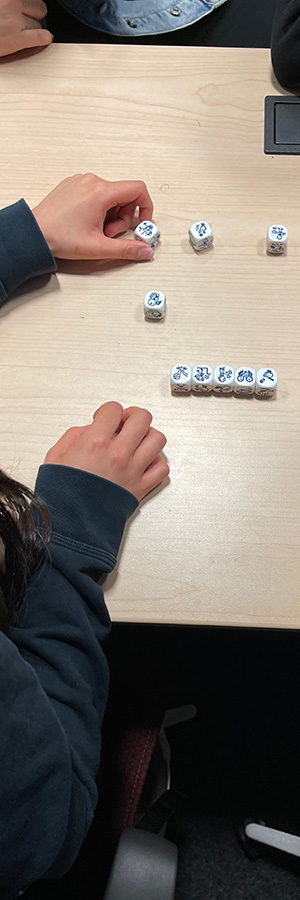
Dr. Cynthia Nicol
Professor
Department of Curriculum and Pedagogy
Dr. Nicol researches the pedagogical possibilities and challenges of culturally responsive mathematics education with/in Indigenous and rural communities. Rooted in place and community, this pedagogical approach values community cultural knowledge and language to expand and deepen ways of supporting students’ mathematical flourishing. Her current research, funded by SSHRC, focuses on (re)imagining the mathematics in Science, Technology, Engineering and Mathematics (STEM) education by turning to Earth as teacher to explore ways of being that contribute to learning to live well with the natural world.
Dr. Anusha Kassan
Associate Professor
Department of Educational and Counselling Psychology, and Special Education
Dr. Kassan’s recent SSHRC-funded project—Arts-Based Engagement Ethnography with Newcomer Students—employs a social justice framework, coupled with an arts-based engagement ethnography, to investigate the phenomenon of school integration among newcomer secondary school students enrolled in French and English public education systems in Vancouver. A social justice framework positions newcomer youth as experts on their own experiences, and arts-based engagement ethnography invites them to engage in the research process in new and creative ways. Preliminary results demonstrate the interconnected factors impacting school integration.
Dr. Maureen Kendrick
Professor
Department of Language and Literacy Education
Dr. Kendrick’s research, funded by SSHRC, explores the potential for multimodal meaning-making to draw from the fuller context of the lives and literacies of children and youth from refugee backgrounds to enhance language learning and identity affirmation. Her current study’s findings show that using multiple representational resources can enable communication of complex, critical understandings; enhance development of literacy competencies; make visible the challenges of communicating in classroom spaces; and encourage investment and identity affirmation in language learning.
Social and Physical Sustainability
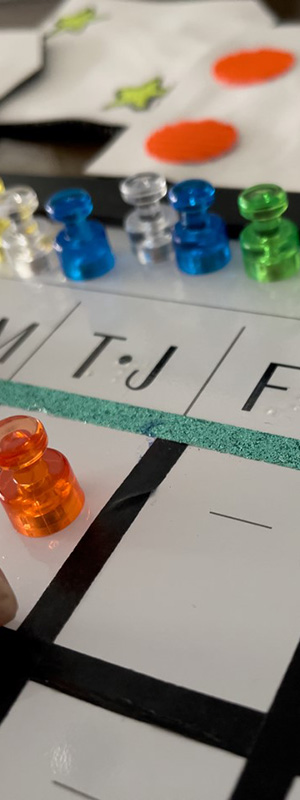
Dr. Kim Zebehazy
Professor
Department of Educational and Counselling Psychology, and Special Education
Dr. Zebehazy is interested in developing problem-solving abilities of students with visual impairments (VI). Her research investigates divergent thinking and executive functioning (EF) profiles of these students to provide teachers with instructional intervention ideas that target specific areas of need. Her research team has found a strong relationship among real-life problem-solving ability, academic ability, and divergent thinking. The team is currently testing adaptations to standard EF measures and newly created functional tasks to gather data on the EF profiles of students with VI.
Dr. John-Tyler Binfet
Associate Professor
Okanagan School of Education
Spearheaded by UBC Okanagan’s dog therapy program, Building Academic Retention Through K9s (B.A.R.K.), and funded by a SSHRC Insight Grant, a new initiative—Virtual Canine Comfort to Support Student Well-Being—saw virtual modules created for students to spend time with therapy dogs as a means of reducing stress. Just published in Anthrozoos, findings from a randomized controlled trial revealed significant reductions in pre-to-post self-reports of stress for students who spent time virtually with B.A.R.K. dogs compared to participants in the control group who did not.
Dr. Brian Wilson
Professor
School of Kinesiology
Dr. Wilson’s research examines how members of the sport industry respond to environmental issues, the role of sport in peace-building and development, and how sport-related social and environmental issues are covered in the mainstream media, focusing especially on ‘best practice’ forms of media coverage. His research has contributed to improving strategies for assessing claims about the benefits of sport and visualizing ways to optimize sport’s potential in relation to social and environmental issues.
Digital Innovations in Education and Health
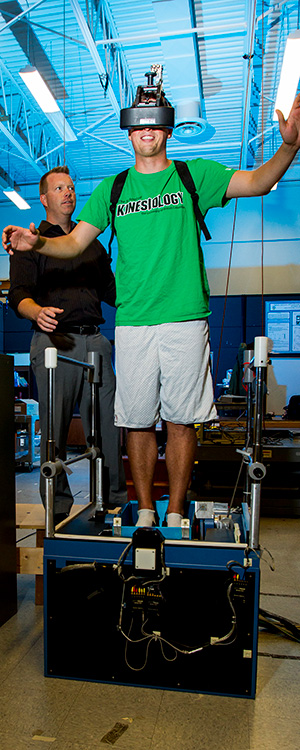
Dr. Jennifer Jenson
Professor
Department of Language and Literacy Education
Dr. Jenson’s research interrupts longstanding patterns of inequitable access to and success in technological subjects and fields. Her current investigations focus on gender inequity in science, technology, engineering and mathematics (STEM) education, where over four decades of research confirm that girls are still being left far behind. Her current SSHRC study looks beyond schools and teachers to map out the landscape of informal STEM-learning opportunities, including the barriers and skills activated through designing digital games.
Dr. Jillianne Code
Assistant Professor
Department of Curriculum and Pedagogy
Dr. Code’s Agency for Learning in Immersive and Virtual Environments (ALIVE) research project examines how game-based assessments enable agency, self-efficacy, and self-regulated learning. Using evidence-centred game design, the ALIVE environment provides adaptable feedback, encouraging self-regulation as students engage in an ecological climate inquiry. The purpose of this research is to examine under what game design conditions agency is enabled, and how different modes of this gameplay impact learning.
Dr. Mark Carpenter
Professor
School of Kinesiology
Co-led by Drs. Jean-Sébastien Blouin and Mark Carpenter, the Origins of Balance Deficits and Falls research cluster unifies 60+ world-class researchers and their trainees in a trans-disciplinary network to understand and model mechanisms contributing to healthy and pathological balance; discover therapeutic interventions for balance deficits and falls; and innovate and advance technology for balance assessment, assistive-devices, and fall prevention. The network fosters inclusive collaboration, knowledge and technology transfer, and training.
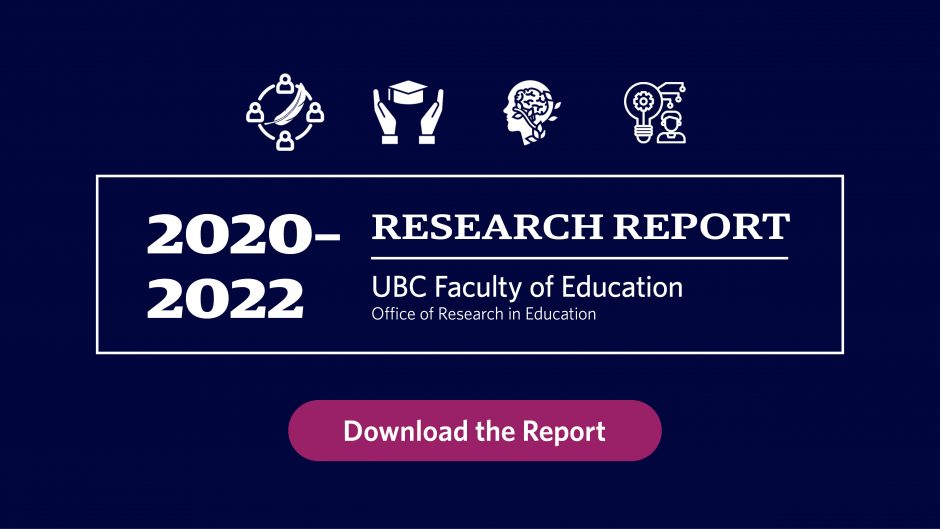
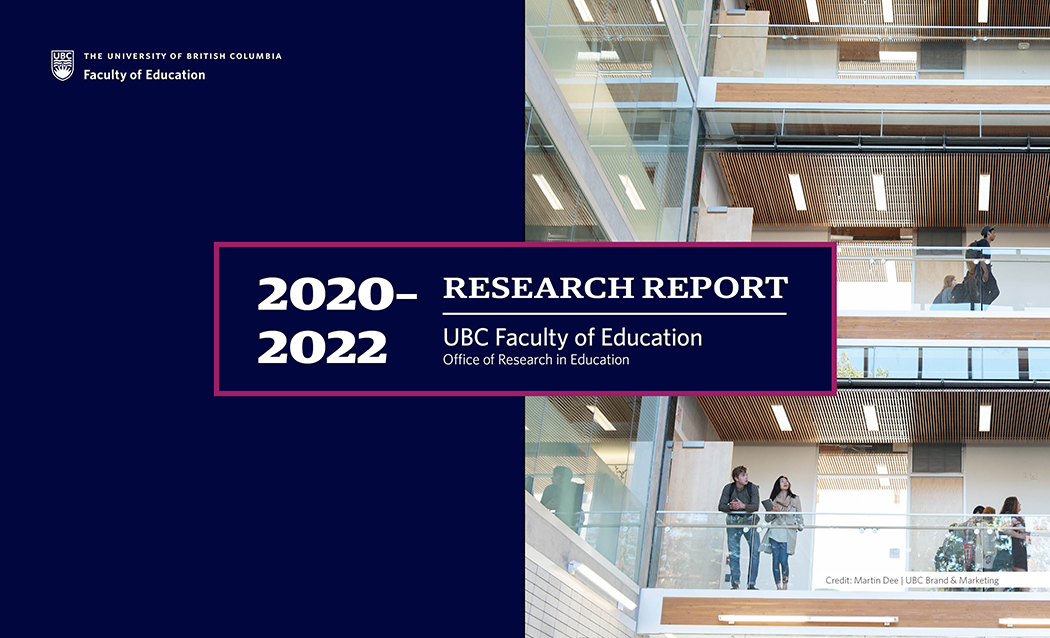 Download the Research Report [PDF]
Download the Research Report [PDF]